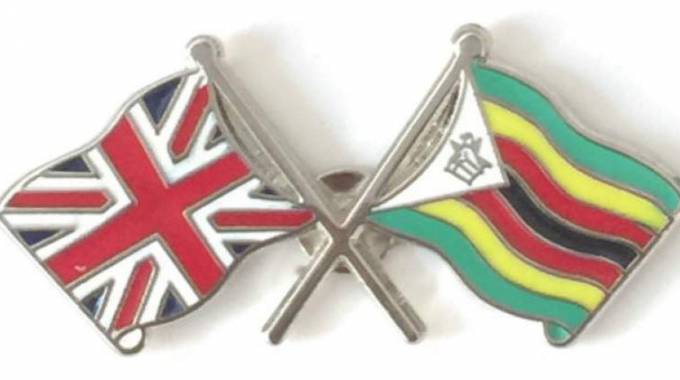
The Sunday Mail

Golden Sibanda
Senior Business Reporter
Zimbabwe will soon ratify a bilateral trade agreement with the United Kingdom (UK) to secure favourable trade terms ahead of Britain’s expected exit from the European Union (EU).
As the UK is preparing to leave the EU, Zimbabwe has already drafted a bilateral trade agreement in preparation for Brexit to strengthen the already existing trade relationship.
Government’s affiliated premier trade promotion body, ZimTrade, managing director Allan Majuru, told The Sunday Mail Business that the trade pact with the United Kingdom awaited ratification by Government ahead of Britain’s EU withdrawal.
“I am very much aware (that Zimbabwe will sign a trade agreement with Britain). It’s under the process of ratification. If you look at our trade, there are a lot opportunities that are going to be opened because of Brexit,” Mr Majuru said in an interview.
The EU is an economic and political union involving 28 European countries. It allows free trade and free movement of people to live and work in whichever country they choose.
The UK joined in 1973 (when it was known as the European Economic Community). If the UK leaves as planned on 31 October 2019, it would be the first member state to withdraw from the EU.
A public vote or referendum was held on 23 June, 2016, to decide whether the UK should leave or remain. Leave won by 52 percent to 48 percent. The referendum turnout was very high at 72 percent, with more than 30 million people voting; 17,4 million people voted for Brexit.
Mr Majuru said when Britain exits the EU; it will need much more in terms of the diversity of its imports, which it used to obtain from the European continental trade block.
A bilateral trade agreement with Britain that will not be part of the EU, will affect exports that received preferential treatment under EU trade pacts that covered the entire block.
A trade agreement is a formal agreement (contract) between two or more countries on treatment to be given to goods and services originating from one country to the other and vice-versa.
Britain is an important trade partner of Zimbabwe with the African country’s exports to the UK increasing by 276 percent to US$112 million in 2018, from US$30 million in 2012.
Last year, the UK was Zimbabwe’s third best export market, taking 21 percent of the product destined for the EU.
The composition of Zimbabwe’s exports to the UK includes diamonds, mange tout peas, black fermented tea, oranges, unmanufactured tobacco, fresh avocados, sculptures, fresh peaches, fresh nectarines, fresh raspberries, passion fruit and jewellery, among others.
On the other hand, Zimbabwe’s major imports from the UK in 2018 were motor vehicles, tractors, telephone sets, spare parts, live animals, medicaments and laboratory reagents.
In December last year, Britain’s Department for International Trade (DIT), headed by Tom Hill announced plans to set up an office in Harare, as Britain regarded Africa as an important continent in terms of its economic as well as security interests.
Zimbabwe’s trade with the UK is currently more with Government by the Interim Economic Agreement EIA.
Under the agreement, Zimbabwe is enjoying duty-free, quota free market access to the UK and other EU members. Since 2012, the United Kingdom has been one of the major source markets and export destinations for Zimbabwean products in the EU.
The UK has a population of 67 million with a Gross Domestic Product (GDP) of US$2,6 trillion, a gross domestic product (GDP) per capita of US$39 526,2 and is ranked 9th biggest among 190 economies in the ease of doing business on the World Bank’s annual ratings.
Zimbabwe is an active member of Comesa and Sadc; two leading Regional Economic Communities (RECs) in Africa. It signed unilateral trade agreements, whereby a country provides preferential market access to products or services originating from another country or group of countries, without reciprocal treatment as well as reciprocal bilateral trade pacts.



